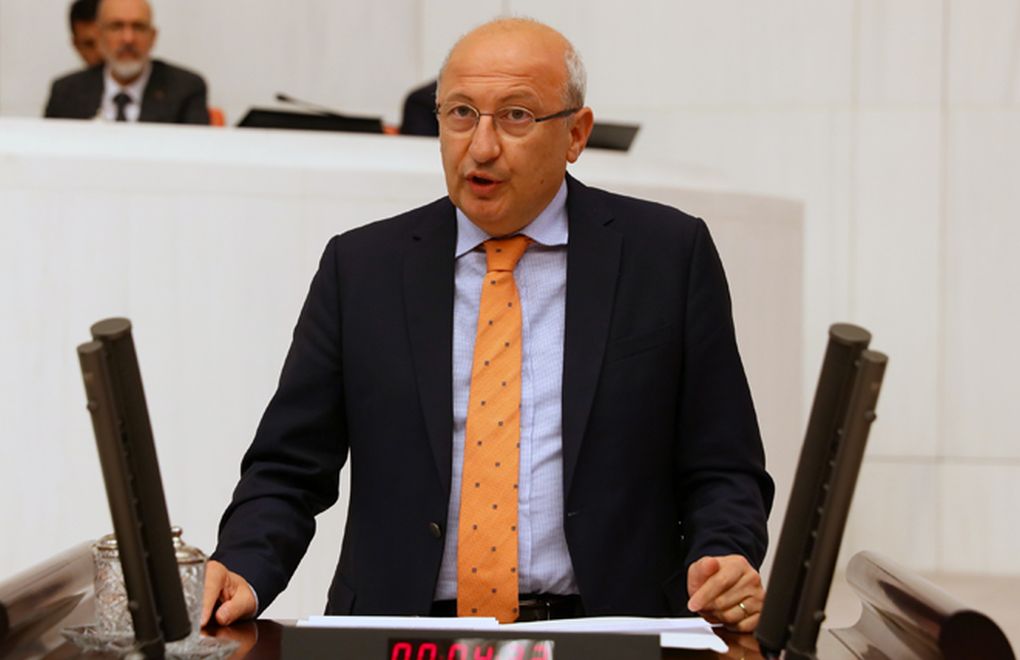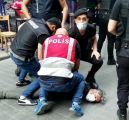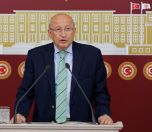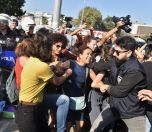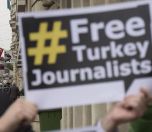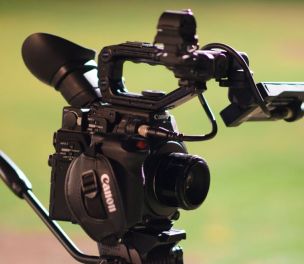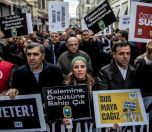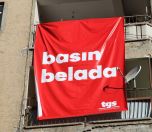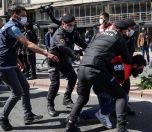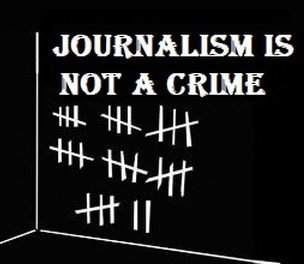* Photo: CHP
Click to read the article in Turkish
Main opposition Republican People's Party (CHP) Eskişehir MP Utku Çakırözer, who announced the report of press freedom violations in April before the World Press Freedom Day on May 3, has said, "We are facing a black picture again this year on Press Freedom Day."
Stating that journalists had to defend their articles and comments in courthouses, Çakırözer has said that 50 journalists appeared before the judge in April and the Radio and Television Supreme Council (RTÜK) was dishing out penalties to television channels.
Çakırözer has emphasized that the circular released by the Directorate General of Security dated April 27, which prevented the recording of images during demonstrations, restricted the freedom of the press from the first day. The MP has briefly added the following:
"Members of the press who wanted to record the disproportionate violence of the police against those who wanted to demonstrate on May 1 were prevented. The circular began to be implemented in a way that restricts freedom of expression and press freedom from day one."
The highlights of the April report are as follows:
- Nearly 50 journalists appeared before the judge in April. Caricaturist Nuri Kurtcebe, one of these names, was sentenced to 2 years and Erol Mütercimler to 10 months in prison. The trial of Melis Alphan over a picture that she shared 6 years ago and the trial of Cem Şimşek on charge of "insulting the President" continue.
- Sözcü newspaper columnist Yılmaz Özdil and journalist Mustafa Hoş were summoned to testify due to their articles and posts, while BirGün sports editor Eren Tutel was sued for his news about the Turkish Wushu Federation and journalist Cihan Ölmez for his social media posts going back to 6 years ago.
- Detention and physical intervention against journalists continued in April. While 6 journalists were detained, 2 journalists were faced with physical intervention. Halk TV reporter Erdinç Yılmaz and camera operator Umur Çilingir, who followed the action to support the students on trial during the Boğaziçi University protests, encountered physical intervention by the police.
- While some of the journalists who wanted to cover the Kobanî incidents case and the protests of Sinbo workers were detained, some of them were prevented from reporting.
- The Radio and Television Supreme Council (RTÜK) also fined television organizations engaged in independent journalism in April. RTÜK imposed heavy fines on Halk TV and Tele1 once, and KRT twice for the opinions broadcasted on programs.
- The difficulties experienced by journalists in following the news increased even more with the Directorate General of Security circular issued in the last week of April. The circular started to be used in a way that restricts the freedom of the press from the very first day.
- Press members who recorded the intervention of the police against those who wanted to demonstrate on May 1 were prevented, while their phone-cameras were confiscated and the footage was deleted, a police circular was given as the justification.
'The circular must be cancelled immediately'
In regards to the report, Utku Çakırözer has stated:
"This circular is against both universal law and the current Constitution and laws. Police units are responsible for ensuring the public order and prevention of crime, and are obliged to fulfill this duty in accordance with the Constitution and laws within the scope of the right to personal immunity, without going too far, without arbitrariness and in a measured manner.
"Recording of audio and video regarding interventions that exceed these limits and reach criminal dimensions, in order to prove violations of rights before competent administrative and judicial authorities or within the scope of freedom of the press, does not constitute a violation of the privacy of private life or the right to protect personal data. This circular must be cancelled immediately." (RT/DCE/SD)




